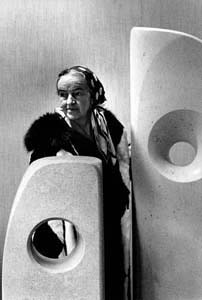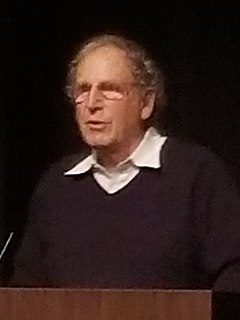A Quote by Karen Armstrong
If we try to hold on to our partial glimpses of the divine, we cut it down to our own size and close our minds. Like it or nor, our human experience of anything or anybody is always incomplete: there is usually something that eludes us, some portion of experience that evades our grasp.
Related Quotes
?Reading good literature is an experience of pleasure...but it is also an experience of learning what and how we are, in our human integrity and our human imperfection, with our actions, our dreams, and our ghosts, alone and in relationships that link us to others, in our public image and in the secret recesses of our consciousness.
...Those laws are within the grasp of the human mind. God wanted us to recognize them by creating us after his own image so that we could share in his own thoughts... and if piety allow us to say so, our understanding is in this respect of the same kind as the divine, at least as far as we are able to grasp something of it in our mortal life.
Of one thing we can be sure: our own future is inseparable from the larger community that brought us into being and which sustains us in every expression of our human quality of life, in our aesthetic and emotional sensitivities, our intellectual perceptions, our sense of the divine, as well as in our physical nourishment and bodily healing.
I'm interested in the parallel narrative of our fantasy lives. How the moment of 'now' that is palpably real, is surrounded by our memories, our dreams and hopes, the stories and connections that our brains make as we navigate a universe of fantasy, or unreality, or surreality. I'm keen to explore this very human experience, how our minds create our own realities, a blend of fact and interpretation of fact.
When we follow the reversal of normal experience, we find ourselves in an unusual, nearly mad experience. Being in an almost mad experience is not something we should fear: only in such experience are we jarred out of our common sense opinions and beliefs. It opens our minds to other ideas and thought. It makes us think.
Some things are up to us [eph' hêmin] and some things are not up to us. Our opinions are up to us, and our impulses, desires, aversions–in short, whatever is our own doing. Our bodies are not up to us, nor are our possessions, our reputations, or our public offices, or, that is, whatever is not our own doing.
The mind is very wild. The human experience is full of unpredictability and paradox, joys and sorrows, successes and failures. We can't escape any of these experiences in the vast terrain of our existence. It is part of what makes life grand-and it is also why our minds take us on such a crazy ride. If we can train ourselves through meditation to be more open and more accepting toward the wild arc of our experience, if we can lean into the difficulties of life and the ride of our minds, we can become more settled and relaxed amid whatever life brings us.
That reality is 'independent' means that there is something in every experience that escapes our arbitrary control. If it be a sensible experience it coerces our attention; if a sequence, we cannot invert it; if we compare two terms we can come to only one result. There is a push, an urgency, within our very experience, against which we are on the whole powerless, and which drives us in a direction that is the destiny of our belief.
Sculpture is, in the twentieth century, a wide field of experience, with many facets of symbol and material and individual calligraphy. But in all these varied and exciting extensions of our experience we always come back tot the fact that we are human beings of such and such a size, biologically the same as primitive man, and that it is through drawing and observing, or observing and drawing, that we equate our bodies with our landscape.
Rather, it is the opening or the interruption that allows us to experience what is hidden, and to accept with our hearts our given situation. When film does this, when it subverts our absorption in the temporal and reveals the depths of our own reality, it opens us to a fuller sense of ourselves and our world. It is alive as a devotional form.






































